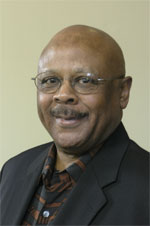A Quote by Janice Rogers Brown
Some things are apparent. Where government moves in, community retreats, civil society disintegrates and our ability to control our own destiny atrophies. The result is: families under siege; war in the streets; unapologetic expropriation of property; the precipitous decline of the rule of law; the rapid rise of corruption; the loss of civility and the triumph of deceit. The result is a debased, debauched culture which finds moral depravity entertaining and virtue contemptible.
Quote Topics
Ability
Apparent
Civil
Civil Society
Civility
Community
Contemptible
Control
Corruption
Culture
Deceit
Decline
Depravity
Destiny
Entertaining
Families
Finds
Government
Law
Loss
Moral
Moral Depravity
Moves
Our
Own
Property
Rapid
Result
Rise
Rule
Rule Of Law
Siege
Society
Some
Some Things
Streets
Things
Triumph
Unapologetic
Under Siege
Virtue
War
Which
Related Quotes
I would agree that much with people who accept private property - that conscription is an unpardonable transgression, whether it be "corrupt" or not. The Spanish anarchists opposed conscription during the civil war in Spain as a gross expropriation of property, the most precious property that we have, our own physical beings themselves.
Obesity is the result of a loss of self-control. Indeed, loss of self-control might be said to be the defining social (or anti-social) characteristic of our age: public drunkenness, excessive gambling, promiscuity and common-or-garden rudeness are all examples of our collective loss of self-control.
The power of perpetuating our property in our families is one of the most valuable and interesting circumstances belonging to it, and that which tends most to the perpetuation of society itself. It makes our weakness subservient to our virtue; it grafts benevolence even upon avarice. The possession of family wealth and of the distinction which attends hereditary possessions (as most concerned in it,) are the natural securities for this transmission.
Our growing ability to eliminate the slow-moving aspects of entertainment and go hopping from one peak to another is not without cost. Stand-up comics, movie-makers and others who earn their living entertaining no longer "waste" time with setups and plot development, lest we reach for the remote and click them off our screen. The result is a loss of subtlety, anticipation and nuance and, in the process, a coarsening of our discourse.
Some of our struggles involve making decisions, while others are a result of the decisions we have made. Some of our struggles result from choices others make that affect our lives. We cannot always control everything that happens to us in this life, but we can control how we respond. Many struggles come as problems and pressures that sometimes cause pain. Others come as temptations, trials, and tribulations.
Deanell Tacha and I decided to write an editorial, because both of us have had experiences in countries where the rule of law is not strong. Uh, where there is civil war. Where there is disorder. And, it, it seemed to us important to underscore that this is a treasure, our rule of law, our judiciary independent from politics, and it's in jeopardy.
That reality is 'independent' means that there is something in every experience that escapes our arbitrary control. If it be a sensible experience it coerces our attention; if a sequence, we cannot invert it; if we compare two terms we can come to only one result. There is a push, an urgency, within our very experience, against which we are on the whole powerless, and which drives us in a direction that is the destiny of our belief.
In life, satisfaction is experienced when activities are brought to a state of completion. Loss of energy and loss of control are functions of incompletion. The result of completing things releases one's ability to create. Prioritize any items that need to be completed, set a completion date, then do it.
Some things the legislator must find ready to his hand in a state, others he must provide. And therefore we can only say: May our state be constituted in such a manner as to be blessed with the goods of which fortune disposes (for we acknowledge her power): whereas virtue and goodness in the state are not a matter of chance but the result of knowledge and purpose. A city can be virtuous only when the citizens who have a share in the government are virtuous, and in our state all the citizens share in the government.
The very idea of freedom presupposes some objective moral law which overarches rulers and ruled alike. Subjectivism about moral values is eternally incompatible with democracy. We and our rulers are of one kind only so long as we are subject to one law. But if there is no Law of Nature, the ethos of any society is the creation of its rulers, educators and conditioners; and every creator stands above and outside his own creation.

































